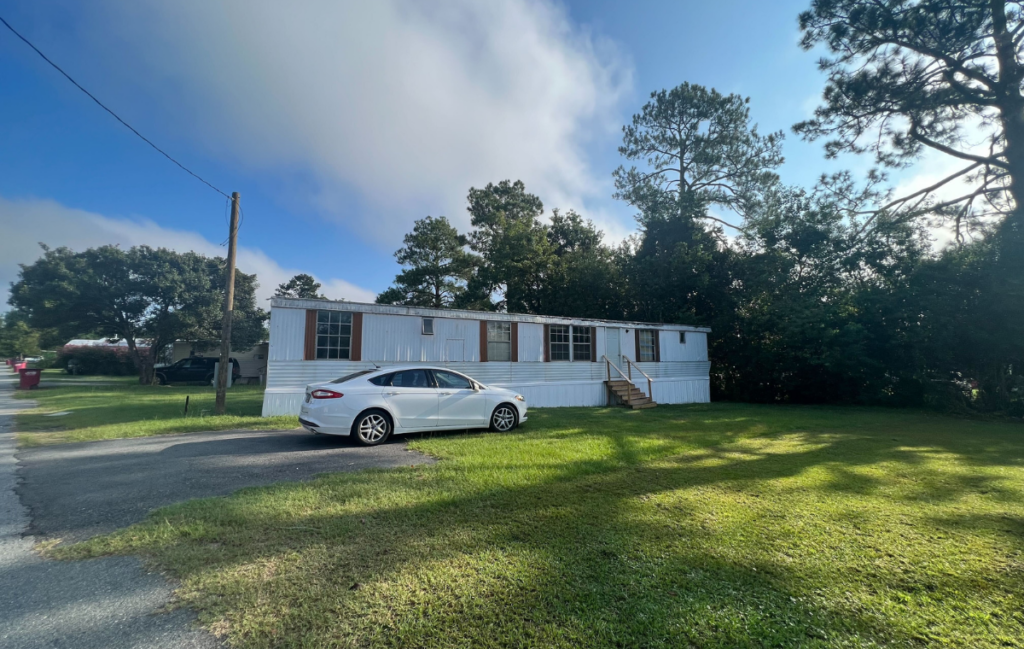Why Now Could Be the Right Time to Invest in Mobile Home Parks
-
 Tristan Hunter - Investor Relations
Tristan Hunter - Investor Relations

In the commercial real estate world, not all properties are considered equal. Some thrive during economic booms, while others hold their ground—or even flourish—when times get tough. Mobile home parks, often viewed as a “contrarian” investment, fit this latter category. With economic challenges like high interest rates, a looming recession, and a potential real estate lending crisis, mobile home parks could offer a unique investment opportunity. Here’s why now could be a good time to invest in mobile home parks.
High Interest Rates: A Challenge and an Opportunity
The Federal Reserve has significantly raised interest rates over the past few years. Rates climbed from near-zero to highs not seen in decades. This rise led to higher mortgage rates, increased cap rates, and lower property valuations across various asset classes.
Higher interest rates are generally tough for real estate investments. They typically increase borrowing costs and reduce cash flow, making it harder for investors to achieve desired returns. However, this broad view doesn’t fully capture the dynamics of the mobile home park asset class.
When interest rates begin to decline—which many experts expect soon—the timing could be ideal to invest in mobile home parks. These trailer parks often rely heavily on leverage, borrowing a large percentage of the purchase price. Declining interest rates can turn this into a strategic advantage. When the interest rate on a loan is lower than the cap rate on the property, investors can see a strong return. As rates fall further, the spread between loan rates and cap rates could widen, potentially boosting returns and increasing the property’s value.
Why Mobile Home Parks Could Thrive in a Recession
Mobile home parks hold a unique position in the real estate market. They focus on affordable housing, unlike many sectors that cater to luxury lifestyles. This focus on affordability typically makes them resilient during economic downturns.
As the U.S. economy faces the possibility of a recession, many luxury-focused real estate sectors may struggle. Demand for luxury apartments, office buildings, and retail spaces often drops when consumers tighten their belts. In contrast, mobile home parks could see increased demand. More people might look for affordable living options during tough economic times.
Affordable housing becomes even more crucial during a recession. When individuals and families face uncertainty, they often seek cost-effective living arrangements. Mobile home parks, with their relatively low lot rents, offer an attractive alternative. For example, the average lot rent in a mobile home park is around $300 per month versus $2,000 being the average apartment rent. This makes mobile homes a viable option for those looking to cut housing costs.
This potential increase in demand can make mobile home parks a resilient investment. History shows they perform well during economic downturns. During the Great Recession of 2008, mobile home parks maintained strong occupancy rates and cash flow. Other real estate sectors struggled, but mobile home parks provided essential affordable housing. This need remains constant, even when the economy falters.
Are you looking for more information? Check out Smart Ways to Improve Your Mobile Home Community, as Andrew Keel deep dives into this exciting asset class!

Navigating the Real Estate Lending Challenges
The commercial real estate market is facing what some call a “lending apocalypse.” Around two trillion dollars of commercial real estate loans will come due in the next two years. Many property owners are struggling to refinance their debt. This is especially true for office buildings and shopping malls. These sectors have been hit hard by changes in consumer behavior and the shift to remote work.
However, mobile home parks might be less affected by this lending crisis for several reasons:
1. Seller Financing:
First, seller financing is common in mobile home park transactions. The seller acts as the lender in these deals, allowing buyers to bypass traditional financial institutions. This flexibility is advantageous during economic uncertainty, as it reduces reliance on traditional bank financing.
2. Government-Backed Loans:
Second, a significant portion of mobile home park loans are backed by Fannie Mae and Freddie Mac. These government-sponsored enterprises specialize in housing finance. Their involvement provides stability and lessens the impact of broader lending challenges. Fannie Mae and Freddie Mac have long supported affordable housing. Their backing adds an extra layer of security to mobile home park investments.
3. Strong Performance Record:
Moreover, mobile home parks have historically had the lowest default rates of any real estate asset class. This strong track record makes them more attractive to lenders, even during economic uncertainty. As a result, mobile home park investors may find it easier to secure financing, even as other sectors face tightening credit conditions.
Conclusion: Invest in Mobile Home Parks with Potential
As the U.S. economy navigates through high interest rates, a potential recession, and a looming real estate lending crisis, mobile home parks stand out. They have historically offered a unique blend of stability and growth potential. While other real estate sectors may struggle, the demand for affordable housing remains strong. Mobile home parks are well-positioned to meet this need.
Investors should, of course, conduct thorough due diligence and consider their financial situation and risk tolerance. However, for those looking for a real estate investment that could perform well in uncertain times, mobile home parks might be worth a closer look.
Educational resources can provide valuable insights. By understanding the nuances of this unique asset class, investors can likely position themselves to take advantage of the opportunities that mobile home parks may offer in today’s complex economic environment.
Learn more about mobile home park investing.
Interested in learning more about mobile home park investing? Get in touch with us today to find out more.
Disclaimer:
The information provided is for informational purposes only and is not investment advice or a guarantee of any kind. We do not guarantee profitability. Make investment decisions based on your own research and consult registered financial and legal professionals. We are not registered financial or legal professionals and do not provide personalized investment recommendations.

Tristan Hunter - Investor Relations
View The Previous or Next Post
Subscribe Below 👇





